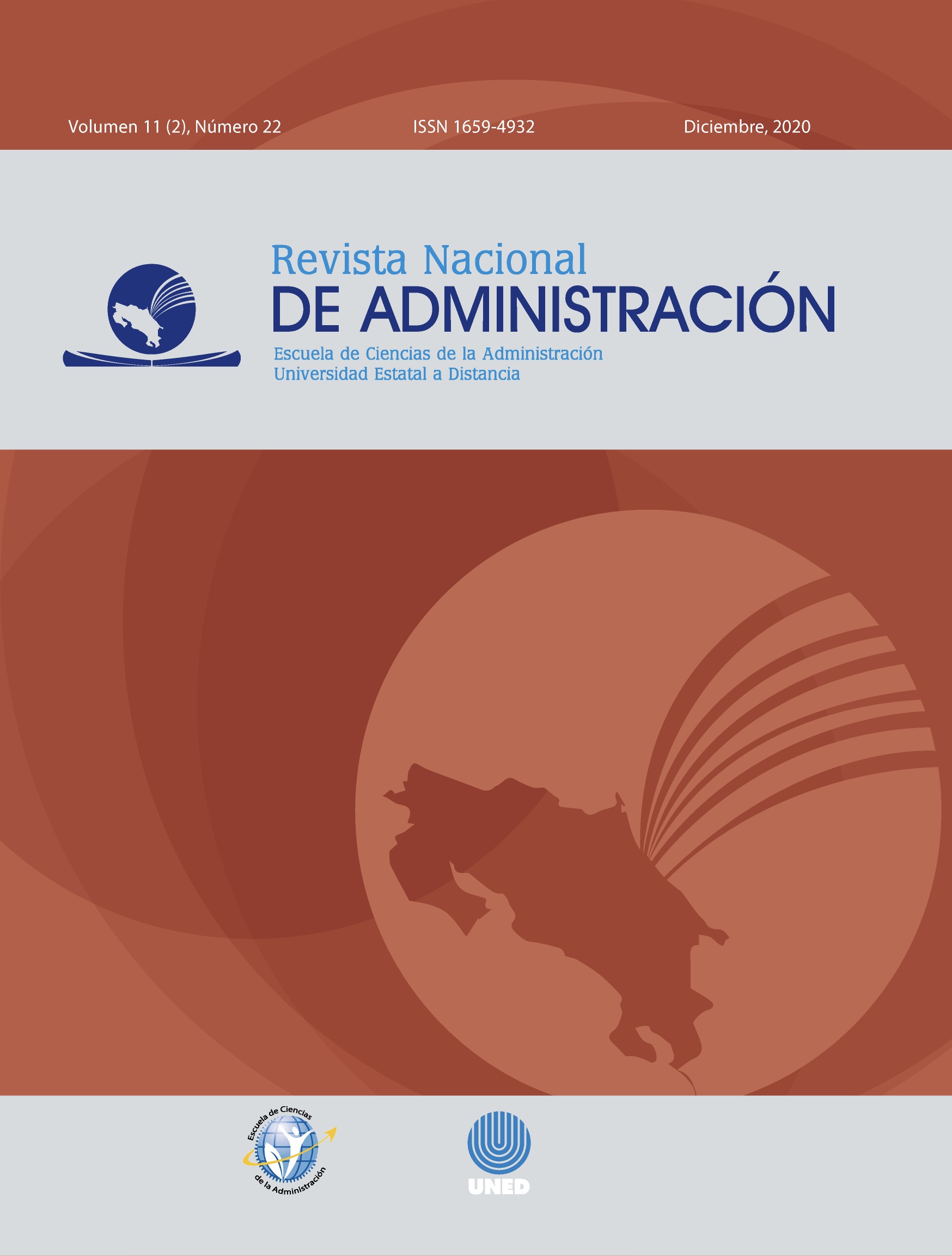Smart specialization: a possible strategy for Costa Rica
DOI:
https://doi.org/10.22458/rna.v11i2.3197Keywords:
Innovation, RIS3 strategy, economic development, regional strategy, innovation hubsAbstract
Innovation is a strategic factor in the economic, social and cultural development of the country aiming at reaching high levels of growth and well-being for its population.
For over 20 years the Basque Country has been developing an innovation model with ecosystem stakeholders through the Smart Specialization Strategy, which makes it a European reference and an innovation hub.
The implementation of the “smart” strategies involves integrated agendas for territorial economic transformation, political support and investments for development through technological and research centers, R&D units, strategic clusters and universities as key actors generating knowledge.
References
Axtra, V., Altuna, J. Entrevista personal el 21 de noviembre 2017, Universidad de Mondragón.
Biskaia Talent. La Universidad de Deusto en el top 6 mundial de la excelencia docente. Recuperado el 11 de setiembre de 2019 de https://www.bizkaiatalent.eus/deusto-global-teaching-award/
Campillo, I. Entrevista personal el 23 de noviembre 2017. Euskampus - UPV/EHU.
Campos, Y. (2017). Taller “Especialización Inteligente: Costa Rica hacia polo de innovación”. 3 de noviembre del 2017. Universidad Estatal a Distancia.
Euskadi (2014). Prioridades estratégicas de especialización inteligente (RIS3), Gobierno Vasco, España.
Etzkowitz, H. y Leydesdorff, L. (2000). The dynamics of innovation: from National Systems and “Mode 2” to a triple helix of university – industry – government relations. Research Policy 29, pp. 109-123.
Etzkowitz, H. (2003). Innovation in innovation: The Triple Helix of university-industry-government relations. Social Science Information, 42(3), pp. 293-337.
Erdozain, J. M. Entrevista personal 23 de noviembre 2017. IK4 Research Allliance.
Gobierno Vasco (2014). Una Estrategia de Especialización Inteligente 2020, https://www.irekia.euskadi.eus/uploads/attachments/5585/PCTI_Euskadi_2020.pdf
Instituto Tecnológico de Costa Rica. 2018. Pensis XI Edición. Poderosos instrumentos de desarrollo. https://www.tec.ac.cr/pensis/articulos/poderosos-instrumentos-desarrollo
Navarro Arancegui, M., Aranguren Querejeta, M. J., Magro Montero, E. (2011). Estrategias de especialización inteligente: el caso del País Vasco. Orkestra-Basque Institute of Competitiveness and Deusto Business School, University of Deusto.
Orkestra (2018). Informe de competitividad del País Vasco. Instituto Vasco de Competitividad.
Universidad de Deusto. 2019. Recuperado de phttps://www.deusto.es/cs/Satellite/deusto/es/universidad-deusto/sobre-deusto-0/la-institucion/mision-e-identidad
Urkullu Renteria, I. (2014). Una estrategia de especialización inteligente. Gobierno Vasco. https://www.irekia.euskadi.eus/uploads/attachments/5585/PCTI_Euskadi_2020.pdf
Valdaliso Gago, Jesús M. (2013). El “caso vasco” de Harvard y las estrategias de competitividad del País Vasco desde 1980 hasta 2012. Revista internacional de los estudios vascos, 58 (1), pp. 112-130.
Villate, J. M. Entrevista personal 20 de noviembre 2017. Funciones de la Agencia Innobasque en el País Vasco.
Downloads
Published
How to Cite
Issue
Section
Categories
License
Aquellos autores/as que tengan publicaciones con esta revista, aceptan los términos siguientes:
- Los autores/as conservarán sus derechos de autor y garantizarán a la revista el derecho de primera publicación de su obra, el cuál estará simultáneamente sujeto a la Licencia de reconocimiento de Creative Commons que permite a terceros compartir la obra siempre que se indique su autor y su primera publicación esta revista.
- Los autores/as podrán adoptar otros acuerdos de licencia no exclusiva de distribución de la versión de la obra publicada (p. ej.: depositarla en un archivo telemático institucional o publicarla en un volumen monográfico) siempre que se indique la publicación inicial en esta revista.
- Se permite y recomienda a los autores/as difundir su obra publicada en la revista a través de Internet (p. ej.: en archivos telemáticos institucionales o en su página web).

